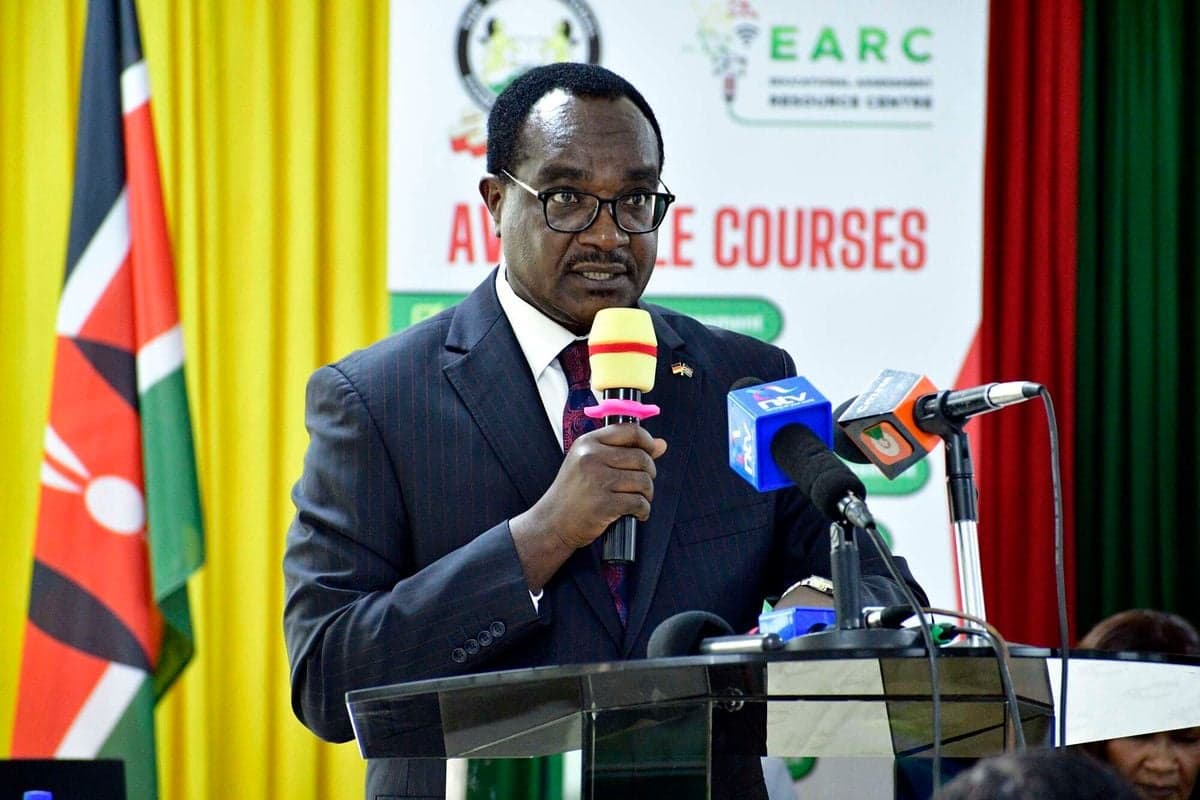We're loading the full news article for you. This includes the article content, images, author information, and related articles.
A new government policy will shift KCSE and KCPE certificate collection to sub-county offices from 2026, aiming to resolve a long-standing conflict between schools crippled by debt and students whose futures are held hostage.

The Kenyan government has announced a significant policy shift aimed at ending the widespread and illegal practice of schools withholding national examination certificates from former students over unpaid fees. Effective 2026, Kenya Certificate of Secondary Education (KCSE) and the former Kenya Certificate of Primary Education (KCPE) certificates will be collected from sub-county education offices, bypassing school administrations entirely. This move, confirmed by Education Cabinet Secretary Julius Ogamba before the National Assembly's Committee on Education on Thursday, October 10, 2025, seeks to dismantle a major barrier that has for years blocked thousands of young Kenyans from pursuing higher education and employment opportunities.
The withholding of academic certificates is a direct contravention of the Kenya National Examinations Council (KNEC) Act of 2012. Section 10(1)(b) of the Act explicitly states that certificates awarded by the council shall not be withheld from a candidate by any person or institution for any reason. Despite this clear legal prohibition, the practice has remained rampant across both public and private schools, a situation government officials have termed an "abuse of power" and a violation of a child's constitutional right to education.
In the months leading up to the policy change, the Ministry of Education has issued a flurry of directives demanding the immediate and unconditional release of all withheld certificates. In a circular dated Friday, April 1, 2025, Basic Education Principal Secretary Julius Bitok instructed County Directors of Education to ensure all secondary schools comply and submit a report within 14 days. This followed a stern warning in March 2025 from CS Ogamba, who gave school heads a 14-day ultimatum to release the documents or face disciplinary and legal action. He noted that some certificates have been held for over a decade, rendering the practice an inefficient method for debt collection.
Acknowledging the persistent defiance by some institutions, the Ministry is now moving to fundamentally alter the certificate distribution process. “We have thought about sending the next results to our sub-county offices with copies of registers to the schools, to confirm the certificates have been picked by the students,” CS Ogamba stated before Parliament. This measure is intended to permanently remove the leverage school heads have used to pressure parents over fee arrears.
In response to a request by Kilifi North MP Owen Baya, the Ministry has also launched a comprehensive audit to determine the exact number of certificates withheld since 2012 and the reasons behind it. The precise number of affected students remains unconfirmed pending the results of this audit, though sources widely state they are in the thousands. “Many cases of withheld certificates are not reported to the ministry or KNEC as affected candidates attempt to resolve the issues between themselves and their respective schools,” CS Ogamba told the parliamentary committee, indicating the official figures may be an undercount. FURTHER INVESTIGATION REQUIRED.
School administrators argue that their actions, while illegal, are born of desperation. They point to two major financial burdens: massive fee arrears from parents and significant delays in the disbursement of government capitation funds. The Kenya Secondary School Heads Association (KESSHA) has stated that public schools are grappling with enormous debts that hinder their operations.
According to KESSHA chairman Willy Kuria, the government owed schools a cumulative total of Sh64 billion in capitation funds from previous years. For the 2025 fiscal year alone, schools faced an Sh18 billion shortfall for the first and second terms. This chronic underfunding makes it difficult to pay suppliers, non-teaching staff, and other operational costs, forcing principals to use fee collection as their only means of survival. “It is important to note that the said fees arrears constitute services already rendered and goods already enjoyed by the student, but whose burden is unfairly borne by schools whose financial situation is already constrained,” Mr. Kuria stated in March 2025.
The Kenya National Union of Teachers (KNUT) has previously argued that the government should pay the billions owed by former students before compelling schools to release the documents. In 2020, the union estimated that former students owed schools Sh14 billion. The Kenya Private Schools Association (KPSA) has also protested the government's directive, arguing that parents who choose private education enter a contract and must settle their debts.
For students, the impact is devastating. Being denied a certificate blocks access to university admissions, job opportunities, and vocational training, effectively stalling their academic and professional lives. Many affected learners come from poor and disadvantaged backgrounds, entrenching a cycle of poverty. While courts have previously ruled in favour of students in such cases, litigation is often a slow and expensive process unavailable to many.
The government’s new distribution policy represents the most decisive step yet to resolve this long-standing issue. By separating the collection of certificates from the collection of fees, the Ministry of Education aims to protect the future of Kenyan learners. However, the underlying financial crisis facing schools remains. CS Ogamba has urged school heads to pursue outstanding fees through legal means, such as civil suits against parents, rather than punishing students. For a sustainable solution, stakeholders maintain that the government must address the severe delays in capitation payments that force schools into financial distress in the first place.
Keep the conversation in one place—threads here stay linked to the story and in the forums.
Other hot threads
E-sports and Gaming Community in Kenya
Active 8 months ago
The Role of Technology in Modern Agriculture (AgriTech)
Active 8 months ago
Popular Recreational Activities Across Counties
Active 8 months ago
Investing in Youth Sports Development Programs
Active 8 months ago
Key figures and persons of interest featured in this article